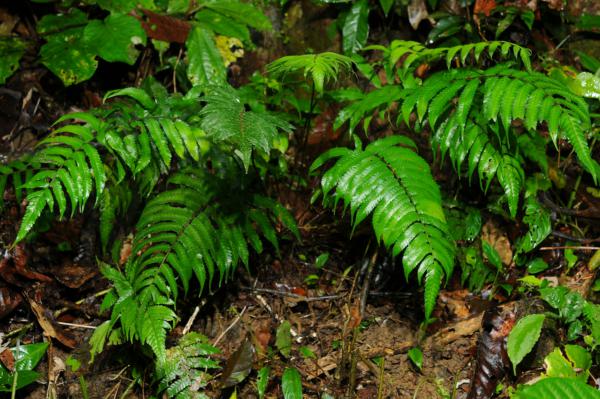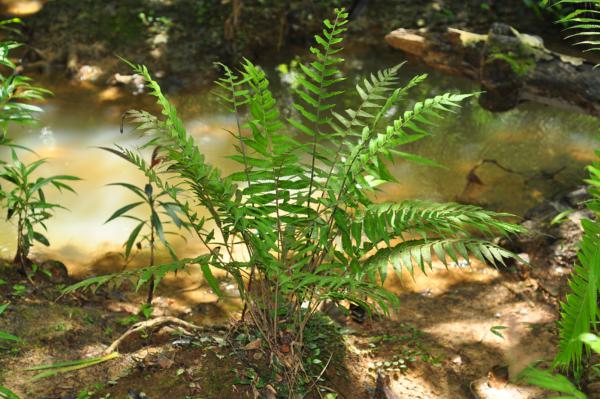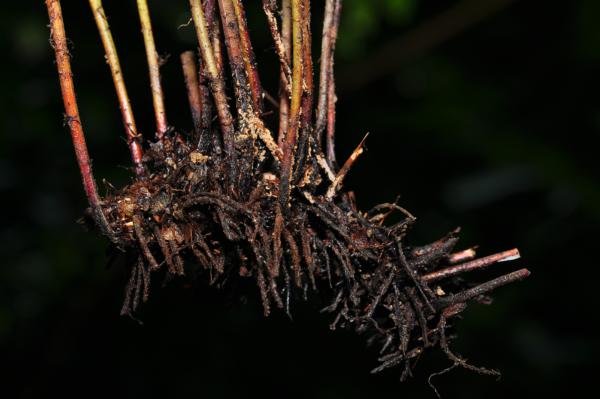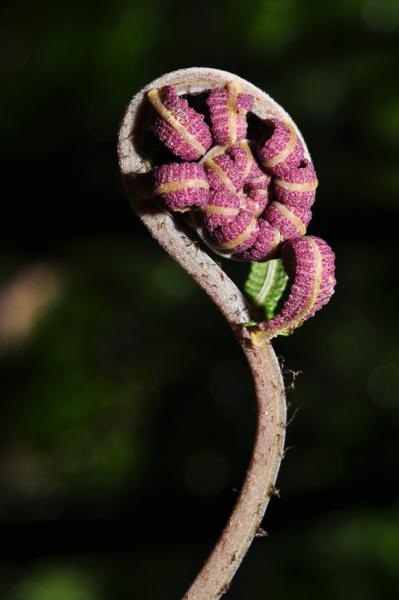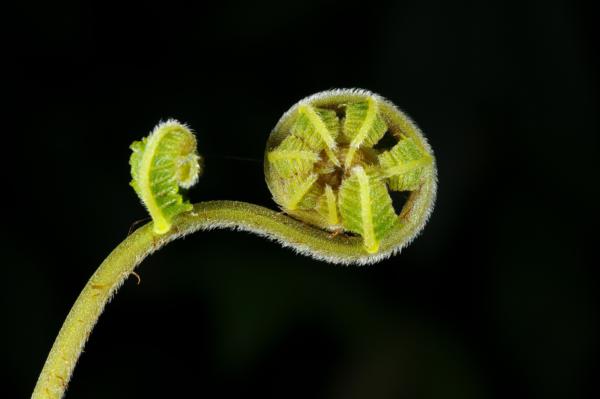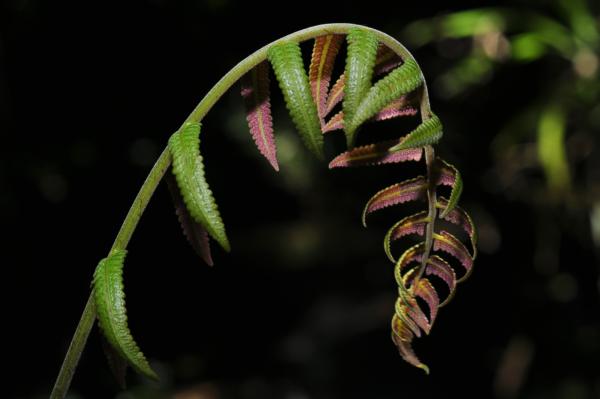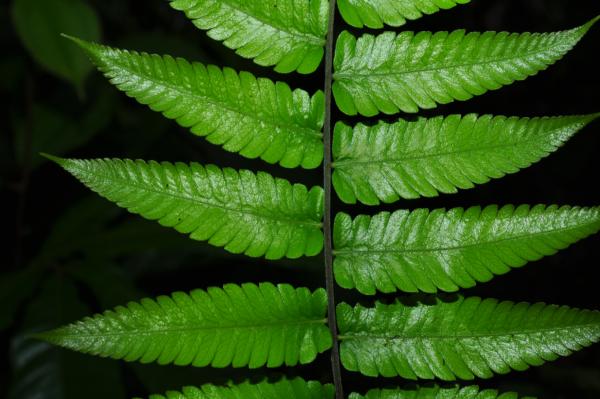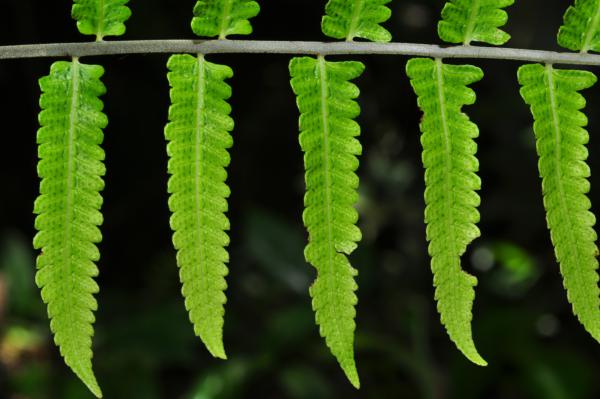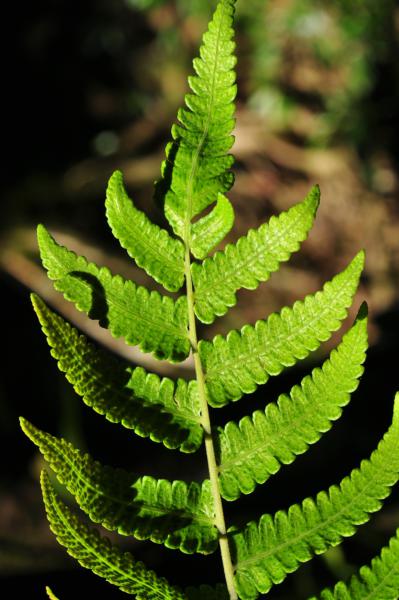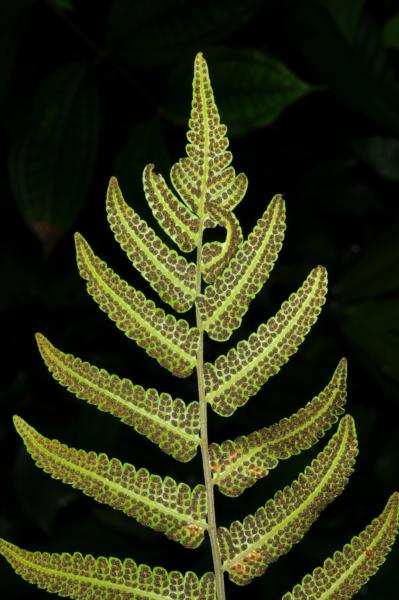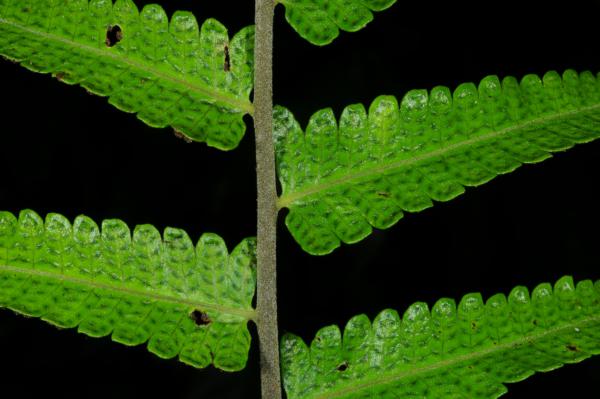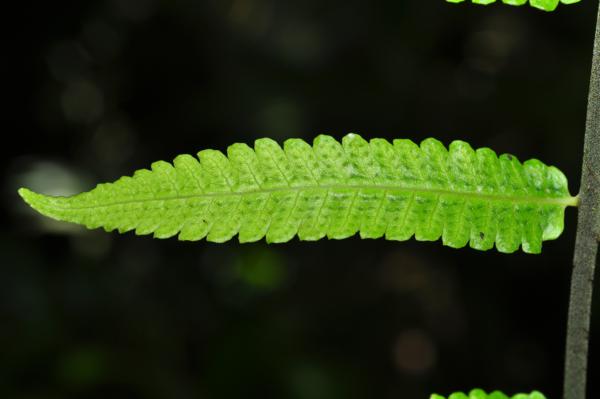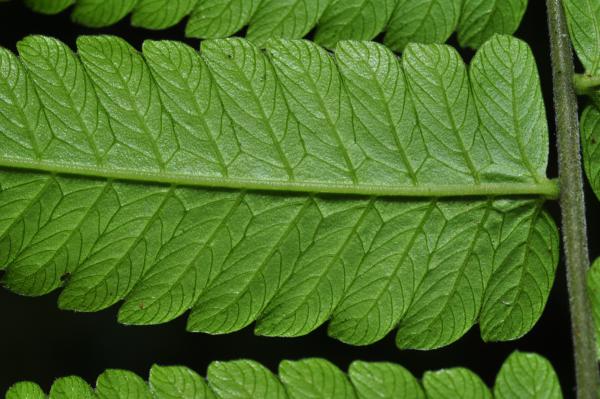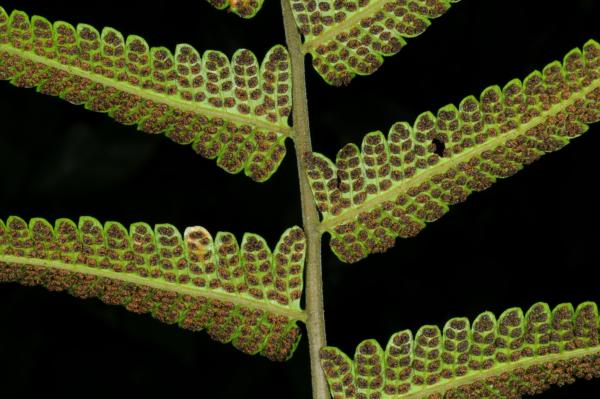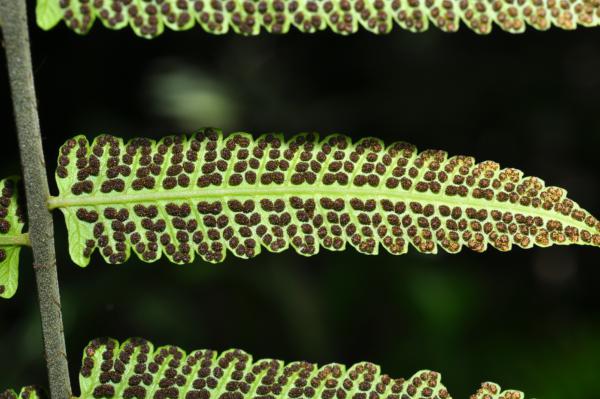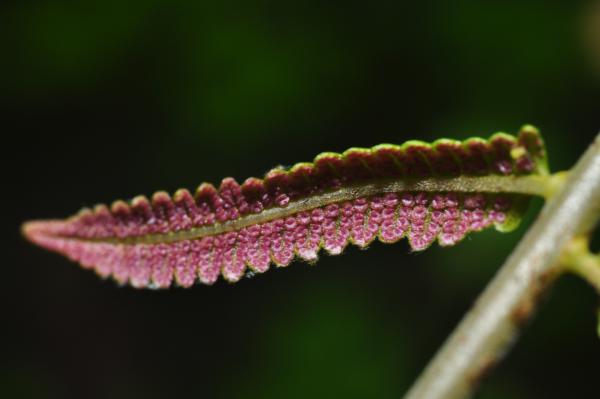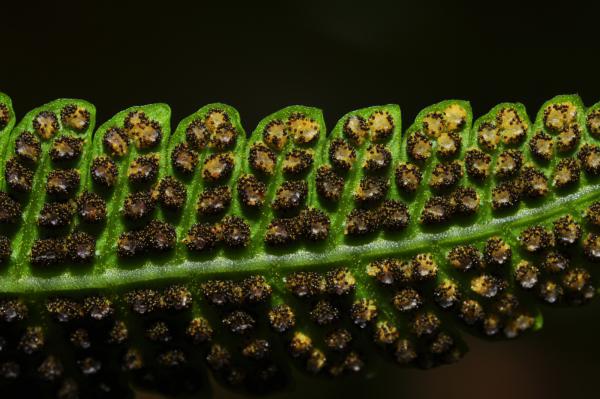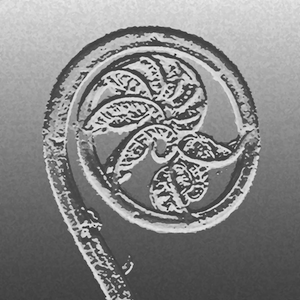
Cyclosorus glandulosus (Blume) Ching
Family
Thelypteridaceae
Nomenclature
Cyclosorus glandulosus (Blume) Ching, Bull. Fan Mem. Inst. Biol. 8: 227. 1938; Holttum, Rev. Fl. Malaya ed. 1, 2: 278, f. 160. 1955 [‘1954’]. – Aspidium glandulosum Blume, Enum. Pl. Javae.: 144. 1828. – Nephrodium glandulosum (Blume) Hook., Sp. Fil. 4: 76. 1862; Bedd., Handb. Ferns Brit. India: 273. 1883; Bedd., Suppl. Ferns Brit. Ind.: 70. 1892. – Thelypteris glandulosa (Blume) Tagawa & K.Iwats., Acta Phytotax. Geobot. 23: 54. 1968, nom. illeg. non (Desv.) Proctor (1960); Tagawa & K.Iwats., Fl. Thailand 3: 408, f. 40.4–5. 1988. – Pronephrium glandulosum (Blume) Holttum, Blumea 20: 118. 1972; Holttum, Fl. Males., Ser. II, Pterid. 1: 522. 1982 [‘1981’]; Boonkerd & Pollawatn, Pterid. Thailand: 226. 2000. – Type: Blume s.n., W. Java (L, sheet 908, 337-89).
Description
Description based on Holttum, Fl. Males., Ser. II, Pterid. 1: 522. 1982 [‘1981’].Rhizome short creeping; fronds dimorphic. Sterile fronds: stipe 20–30 cm long, minutely hairy; lamina 30–50 cm long; pinnae 9–12 pairs; basal pinnae narrowed at base, more on basiscopic than acroscopic side, with stalks 2 mm long. Largest pinnae commonly 9–12 x 2.1–2.5 cm; base truncate, auricled on acroscopic side, apex abruptly short-acuminate; edges obliquely lobed to a depth of 1–2 mm or sometimes more deeply; costules to 5 mm apart; veins to 8 pairs, 2–4 pairs anastomosing (according to depth of lobing), 1.5–2 pairs to sides of sinus-membrane; lower surface of rachis covered with thick curved hairs more than 0.5 mm long, similar but shorter hairs on costae, very short and sparse on costules and veins, surface between veins pustular, bearing many glands and sometimes very short erect hairs; upper surface covered throughout more or less closely with fine appressed hairs 0.2–0.3 mm long. Fertile fronds: stipe to 50 cm long; pinnae more widely spaced than sterile, commonly to 7 x 1.5 cm, edges shallowly crenate; sori medial, lower ones at least somewhat elongate along veins; indusia thin bearing many very short hairs; sporangia with glands on body and a hair with glandular tip on stalk; spores with a complete wing and cross-wings.
Distribution in Thailand
PENINSULAR: Trang, Satun, Yala.
Wider Distribution
W Malesia.
Ecology
Terrestrial near streams at low altitudes.
Proposed IUCN Conservation Assessment
Least Concern (LC). This species is widespread and not under any known threat.
Voucher specimens - Thailand
Middleton et al. 5370, Satun, Than Plew Waterfall (E); Middleton et al. 5492, Trang, Ton Tok Waterfall (E).
Habit
Habit
Rhizome
Crozier
Crozier
Unfurling frond
Upper surface of frond
Pinnae
Frond apex from above
Frond apex from beneath
Upper surface of rachis and pinane
Upper surface of young pinna
Venation
Lower surface of rachis and pinnae
Lower surface of pinna
Young pinna with young sori
Sori
Site hosted by the Royal Botanic Garden Edinburgh. Content managed by Stuart Lindsay, Gardens by the Bay, Singapore and David Middleton, Singapore Botanic Gardens. Last updated 24 January 2012
